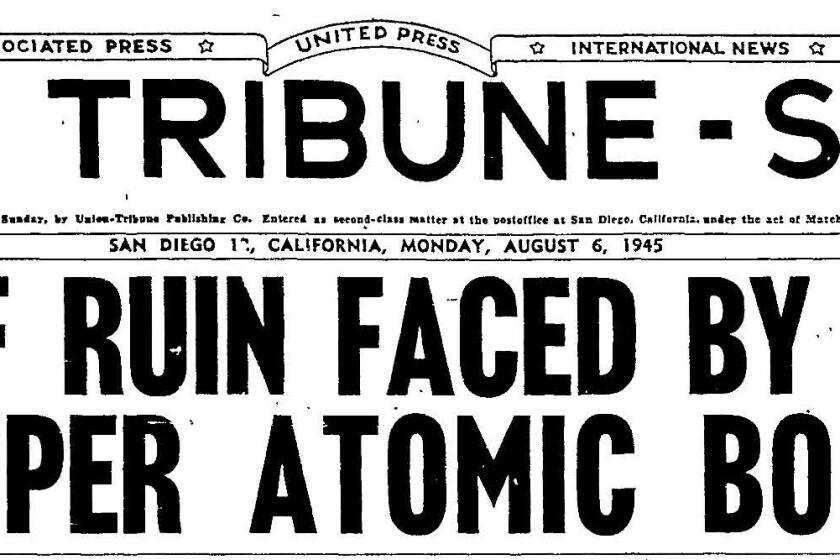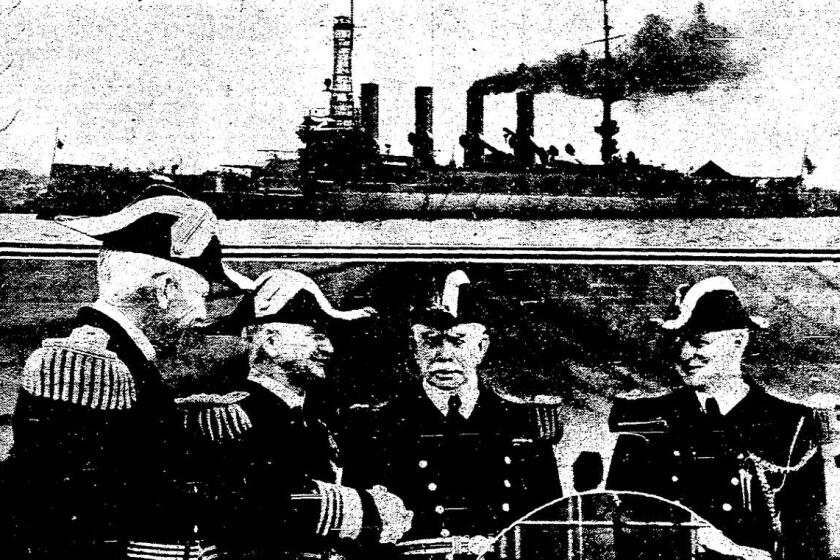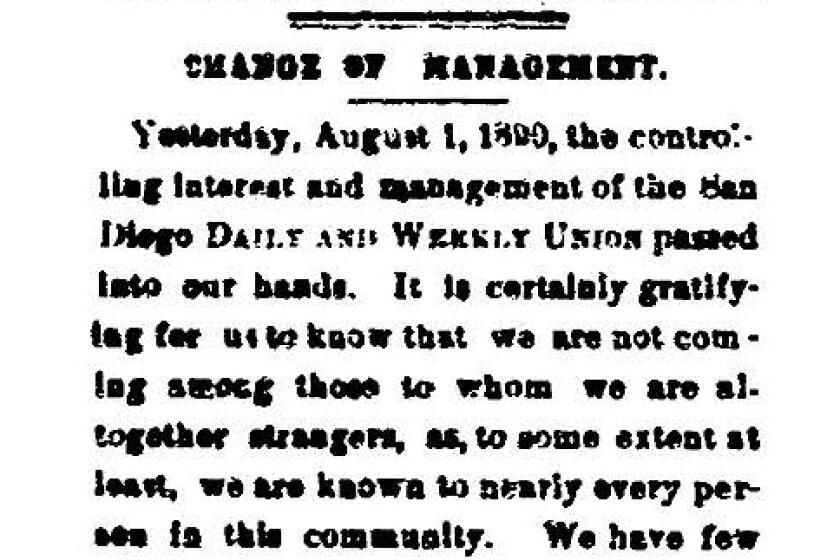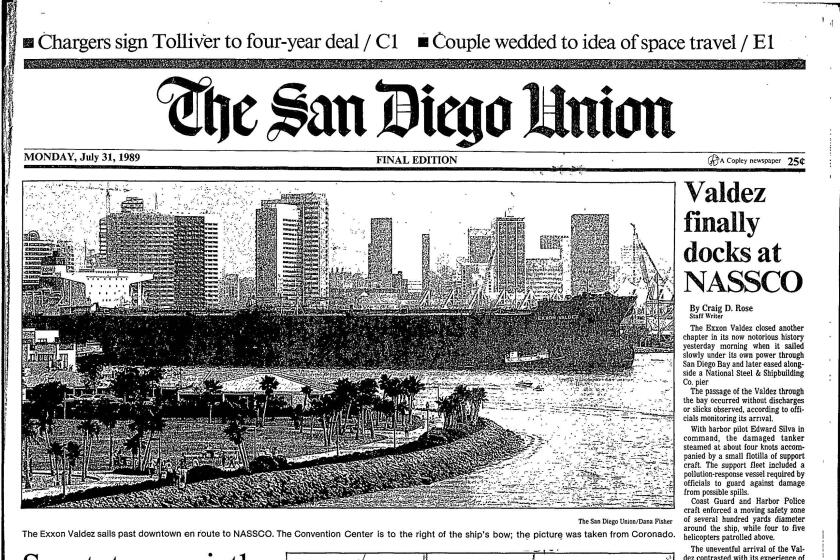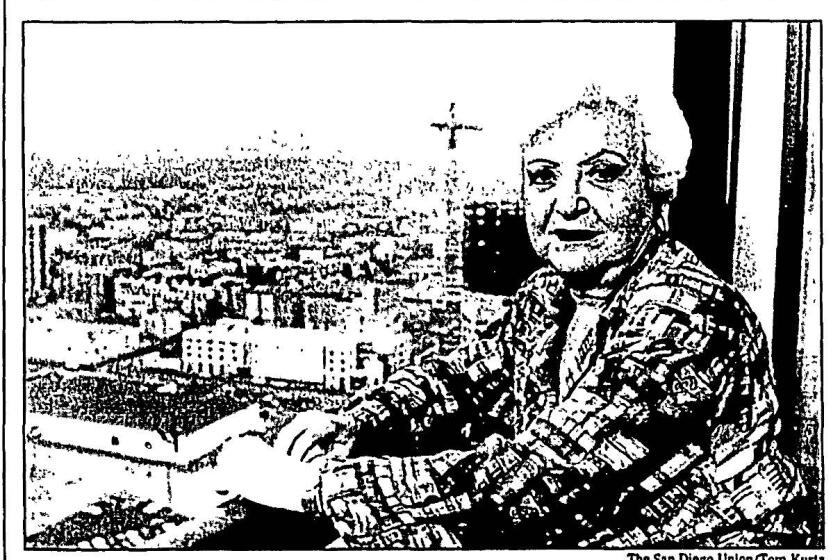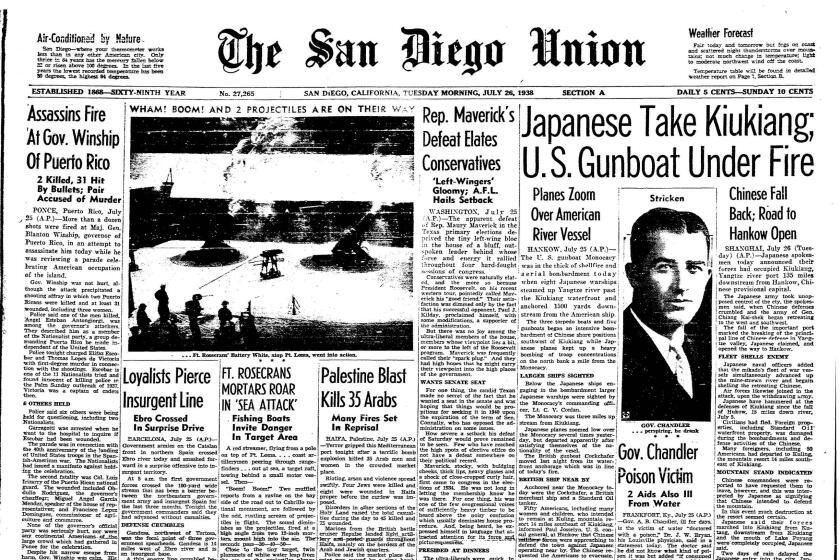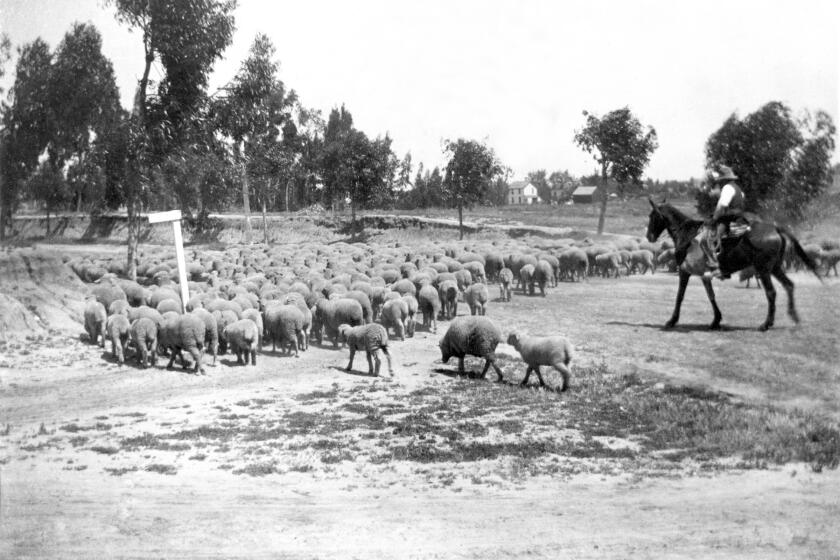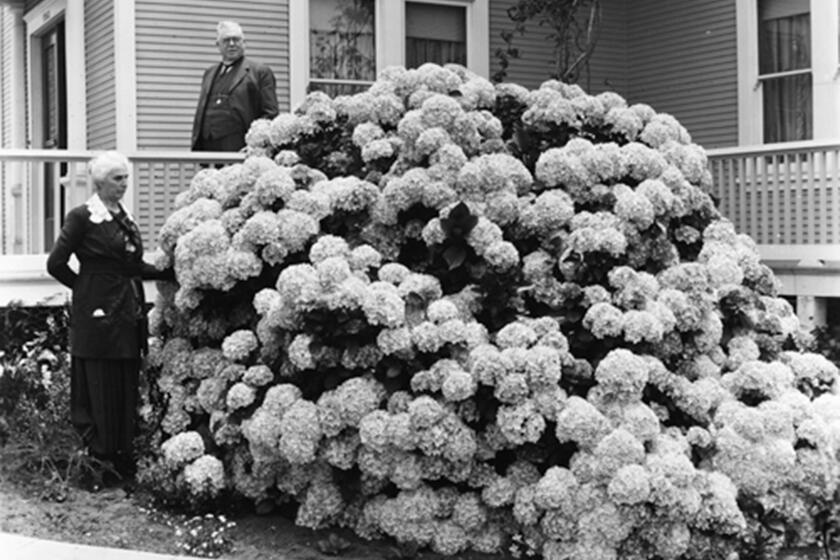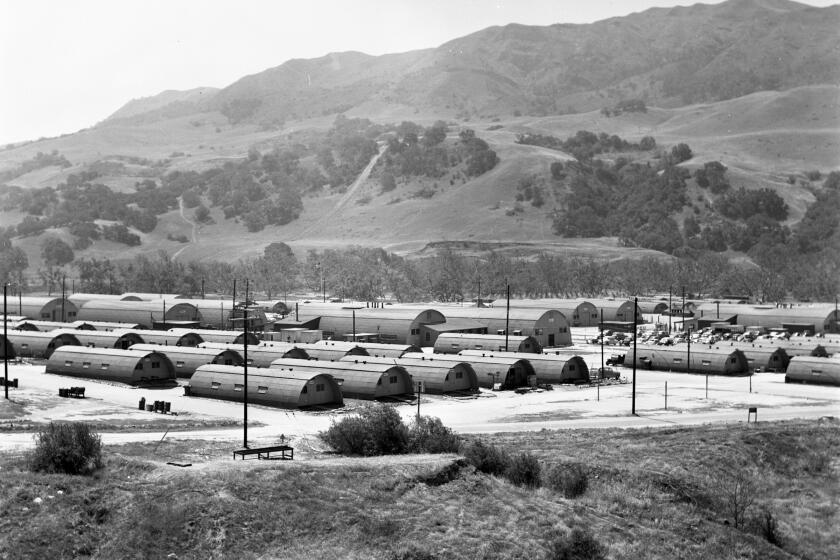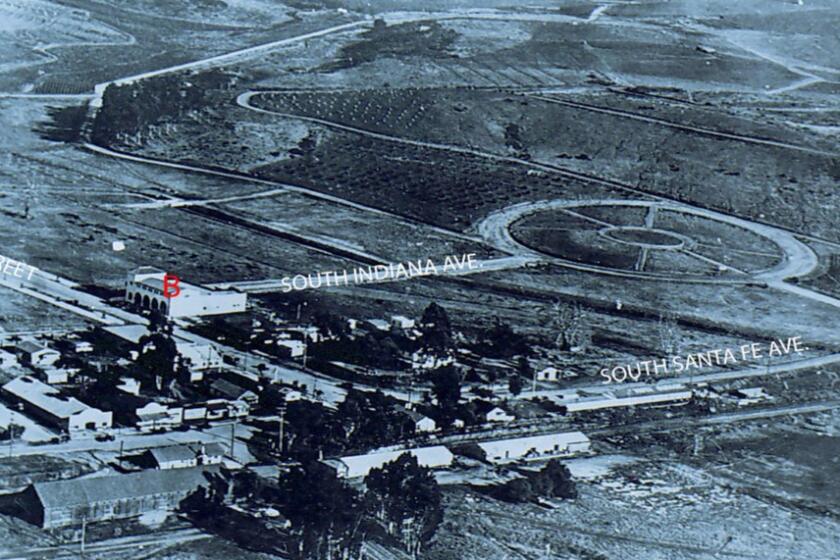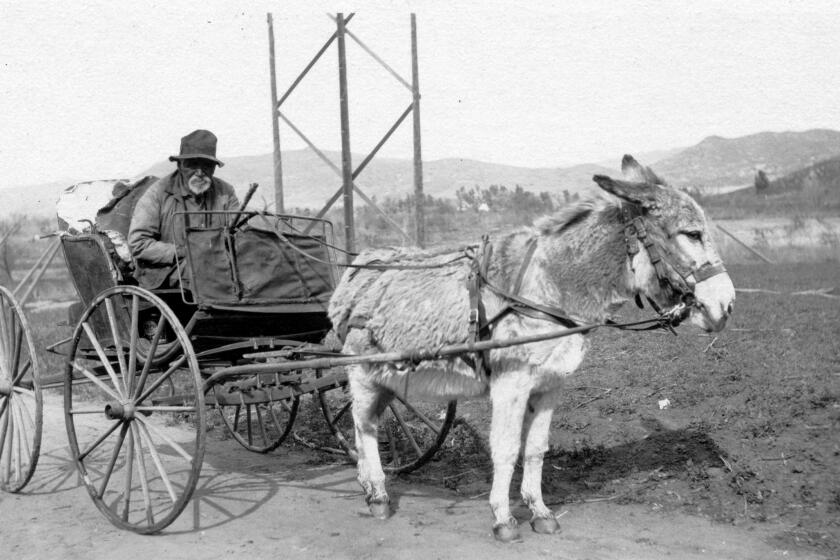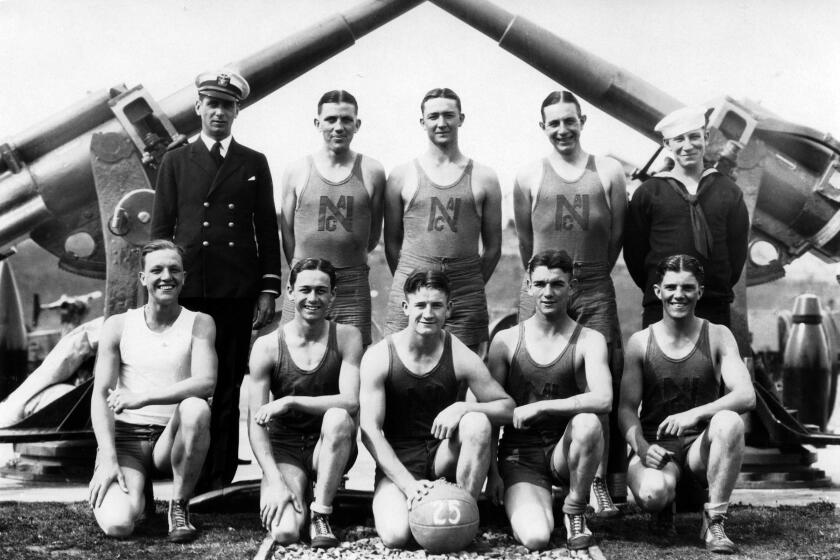From the Archives: Gregory Peck filmed MacArthur in San Diego 45 years ago
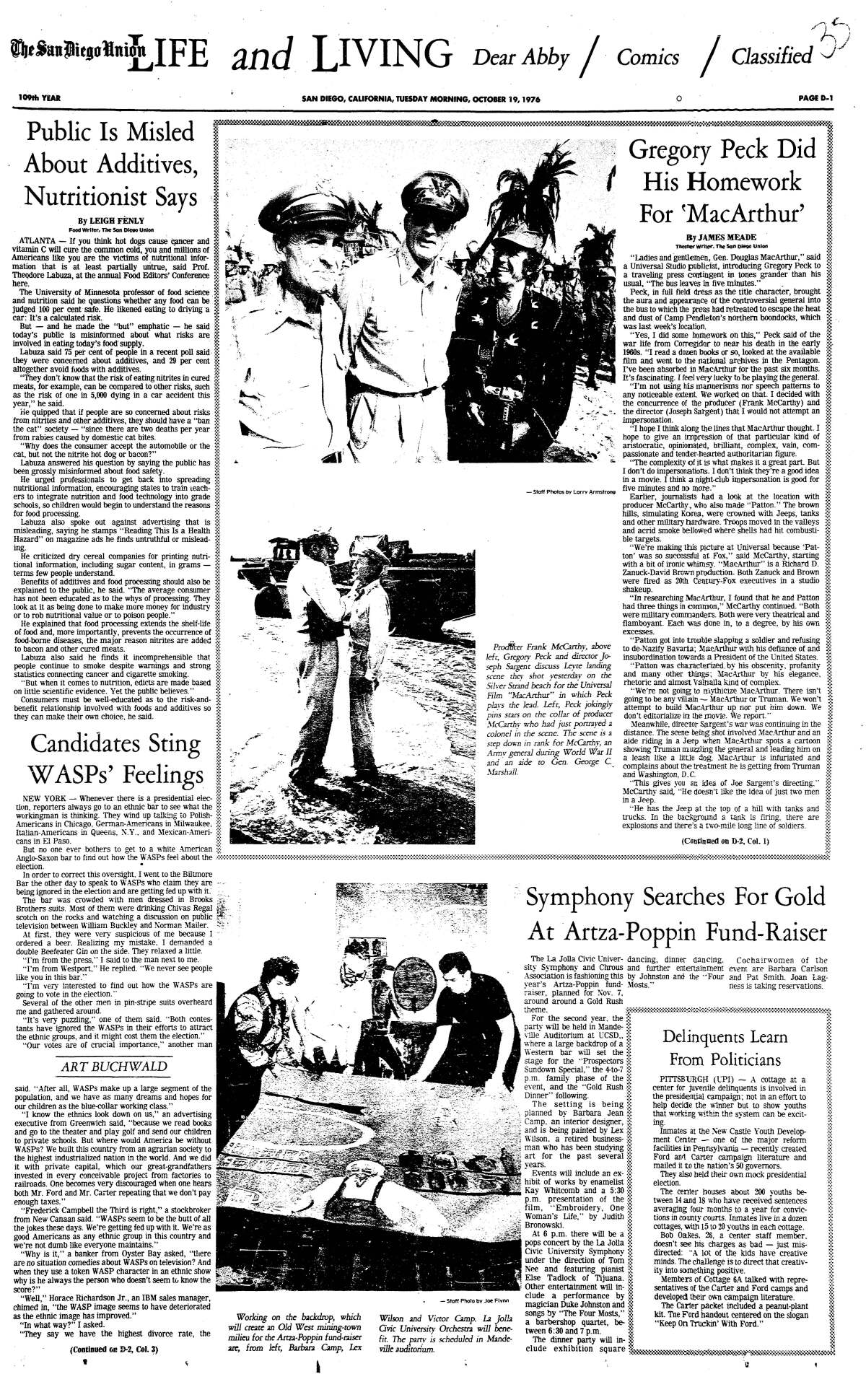
Forty-five years ago, Gregory Peck, starring as a General Douglas MacArthur, spoke to the Union’s James Meade in between filming scenes from Universal Studio’s “MacArthur” around San Diego. Peck, a La Jolla native who co-founded the La Jolla Playhouse and became one of the world’s great film stars, died in 2003.
From The San Diego Union, Tuesday, Oct. 19, 1976:
Gregory Peck Did His Homework For MacArthur
By James Meade, Theater writer, The San Diego Union
“Ladies and gentlemen, Gen. Douglas MacArthur,” said a Universal Studio publicist, introducing Gregory Peck to a traveling press contingent in tones grander than his usual, “The bus leaves in five minutes.” .
Peck, in full field dress as the title character, brought the aura and appearance of the controversial general into the bus to which the press had retreated to escape the heat and dust of Camp Pendleton’s northern boondocks, which was last week’s location.
“Yes, I did some homework on this,” Peck said of the war life from Corregidor to near his death in the early 1960s. “I read a dozen books or so, looked at the available film and went to the national archives in the Pentagon. I’ve been absorbed in MacArthur for the past six months. It’s fascinating. I feel very lucky to be playing the general.
“I’m not using his mannerisms nor speech patterns to any noticeable extent. We worked on that. I decided with the concurrence of the producer (Frank McCarthy) and the director (Joseph Sargent) that I would not attempt an impersonation.
“I hope I think along the lines that MacArthur thought. I hope to give an impression of that particular kind of aristocratic, opinionated, brilliant, complex, vain, compassionate and tender-hearted authoritarian figure.
“The complexity of it is what makes it a great part. But I don’t do impersonations. I don’t think they’re a good idea in a movie. I think a night-club impersonation is good for five minutes and no more.”
Earlier, journalists had a look at the location with producer McCarthy, who also made “Patton.” The brown hills, simulating Korea, were crowned with Jeeps, tanks and other military hardware. Troops moved in the valleys and acrid smoke bellowed where shells had hit combustible targets.
“We’re making this picture at Universal because ‘Patton’ was so successful at Fox,” said McCarthy, starting with a bit of ironic whimsy. “MacArthur” is a Richard D. Zanuck-David Brown production. Both Zanuck and Brown were fired as 20th Century-Fox executives in a studio shakeup.
“In researching MacArthur, I found that he and Patton had three things in common,” McCarthy continued. “Both were military commanders. Both were very theatrical and flamboyant. Each was done in, to a degree, by his own excesses.
“Patton got into trouble slapping a soldier and refusing to de-Nazify Bavaria; MacArthur with his defiance of and insubordination towards a President of the United States.
“Patton was characterized. by his obscenity, profanity and many other things; MacArthur by his elegance, rhetoric and almost Valhalla kind of complex.
“Patton got into trouble slapping a soldier and refusing to de-Nazify Bavaria; MacArthur with his defiance of and insubordination towards a President of the United States.
“Patton was characterized. by his obscenity, profanity and many other things; MacArthur by his elegance, rhetoric and almost Valhalla kind of complex.
“We’re not going to mythicize MacArthur. There isn’t going to be any villain—MacArthur or Truman. We won’t attempt to build MacArthur up nor put him down. We don’t editorialize in the movie. We report.”
Meanwhile, director Sargent’s war was continuing in the distance. The scene being shot involved MacArthur and an aide riding in a Jeep when MacArthur spots a cartoon showing Truman muzzling the general and leading him on a leash like a little dog. MacArthur is infuriated and complains about the treatment he is getting from Truman and Washington, D.C.
“This gives you an idea of Joe Sargent’s directing.” McCarthy said, “He doesn’t like the idea of just two men in a Jeep.
“He has the Jeep at the top of a hill with tanks and trucks. In the background a tank is firing, there are explosions and there’s a two-mile long line of soldiers.
“While the dialogue is going on, Mr. Sargent is in the background. He invariably does that. He doesn’t believe in static scenes.
“He works like heck and, incidentally, increases the budget daily because, in the budget for the scene, there are no explosions, no tanks, no troops, just a Jeep and a couple of guys. But that’s Joe Sargent’s way.”
“There is a tendency to set up MacArthur for a lot of generalities,” Sargent said. “We’ve had to weed them out. They’re too easy at the expense of a well-rounded characterization.
“So we don’t have an anti-MacArthur film. We don’t have a pro-MacArthur film. We hope to have a rounded characterization of a complex, not-to-well-liked American general. Tough—it’s tougher than I thought it would be.
This week in San Diego and its naval facilities are passing for scenes in Australia, Hawaii and the Philippines. Meanwhile, the continuation of Sargent’s war reminded producer McCarthy of an incident with his four-star technical adviser filming “Patton.” The retired general told McCarty he thought making a movie was much more difficult than fighting a war.
Historical photos and articles from The San Diego Union-Tribune archives are compiled by Merrie Monteagudo. Search the U-T historic archives at sandiegouniontribune.newsbank.com.
Get Essential San Diego, weekday mornings
Get top headlines from the Union-Tribune in your inbox weekday mornings, including top news, local, sports, business, entertainment and opinion.
You may occasionally receive promotional content from the San Diego Union-Tribune.

